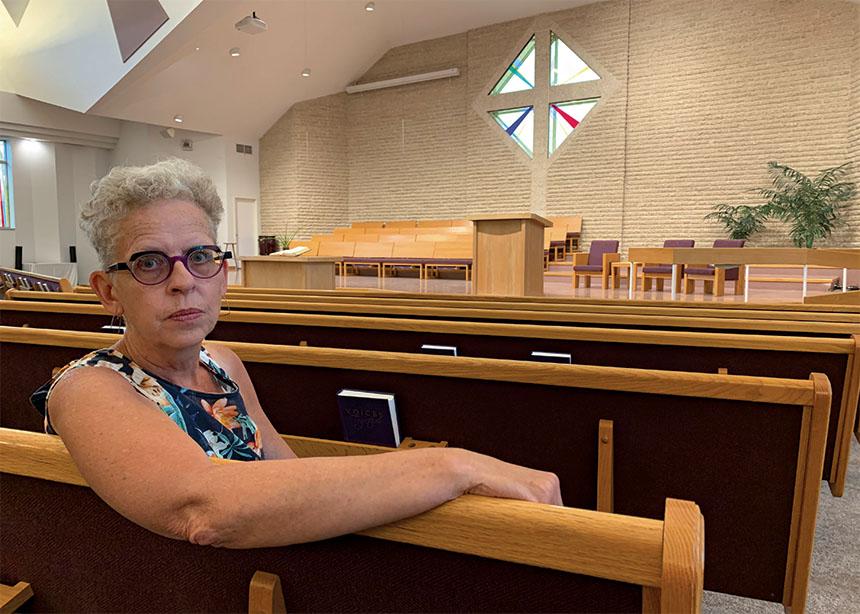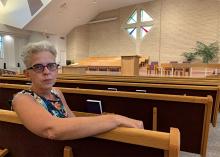Members of a Winnipeg church are feeling shocked and bewildered after the revelation that multiple households in the congregation were defrauded of a total of more than $1 million.
Leaders at Bethel Mennonite Church informed the congregation last month of the case of affinity fraud—an investment scam based on assumed trust that targets members of an identifiable group, such as elderly people or religious or ethnic communities.
More than 30 households were defrauded over the course of at least 10 years. The church is not publicly naming the people involved.
The story begins more than a decade ago, when the fraudster approached his parents, who are active members at Bethel, for financial support.
He said he needed the money for delinquent child support payments as well as legal fees for a lawsuit he claimed would result in a large settlement.
When the parents could no longer give money, they began asking friends at the church to help their son.
Those friends were told that they would get their money back as soon as the lawsuit was settled. They were also told that the lawsuit was protected by a non-disclosure agreement and were asked not to say anything to anyone, as it could jeopardize the lawsuit’s outcome.
The scope of the fraud started coming to light last August when a few members of the church became concerned after learning about the loans.
From September 2022 to April 2023, a church committee worked with the family to investigate the son’s claims. It became apparent that there likely had never been a lawsuit.
The fraudster’s parents had kept careful records in the meantime. In addition to the $700,000 they gave their son, who at one time attended the church, 35 households at Bethel had contributed almost $1.1 million.
Members at Bethel are experiencing a range of emotions, including relief that the fraud has been exposed and deep sadness, says Adelia Neufeld Wiens, a spokesperson for the church.
“There is no playbook out there that we can find for how a church should deal with this,” said Neufeld Wiens, a Bethel deacon who is designated to speak publicly on this matter.
The church has alerted the financial crimes unit of the Winnipeg Police Service and is seeking expertise on how to support those who have been harmed.
“It’s a complicated story and it’s not anywhere near done,” Neufeld Wiens said. “As a church we talk about healing and justice, but those are not things that you can legislate or demand; they take time.”
This past February, the Canadian Anti-Fraud Centre reported that in 2022, it received fraud and cybercrime reports totaling $530 million in victim losses. That was a nearly 40 per cent increase from 2021, an increase the centre describes as unprecedented.
The centre, which is jointly managed by the RCMP, the Competition Bureau and the Ontario Provincial Police, estimates that only 5 to 10 per cent of people who are victims of fraud report it.
Leaders at Bethel chose to inform the whole congregation about the fraud and contact the media for several reasons, Neufeld Wiens said.
They want to ensure that they are being transparent and they want to assure those who have been harmed that the church cares about them.
Additionally, leaders at Bethel see the affinity fraud that took place in their midst as a cautionary tale.
“We as a church need to be open about it for the sake of other churches as well,” Neufeld Wiens said.
“It’s important to recognize the power of secrecy,” she added. “Secrets can be toxic and dangerous…. If you’re asked to give money and there’s secrecy involved, be very careful. And I think that’s also what’s behind council’s desire for openness and transparency. The secret’s gone on for long enough.”





Comments
A fraud is a deeply sad situation on so many levels.
Is there a wider learning? What would a counter-culture that decreases the chance of repeating this sadness look like?
It is so hurtful when people's instinct to stand by their family and friends becomes a liability. That specific vulnerability affects all age groups.
All the best to the leaders and all the people of Bethel in this trying time. Biblical passages are swirling in my mind as I write. Biblical laments are applicable. It is so true across many eras and so much too bad that in life we must be wise as serpents while being innocent as doves.
I think this article will help others avoid being scammed, so thanks to Aaron Epp for writing it and thanks to the victims who shared their story, though it might be painful to do so. Thanks also to Lois Epp for adding good comments.
Something we can do is look out for people who may be more vulnerable to fraud, such as seniors and immigrants. "Have the talk". As much and as often as necessary, though it may not be an easy topic. And establish safeguards and double-checks, etc.
Add new comment
Canadian Mennonite invites comments and encourages constructive discussion about our content. Actual full names (first and last) are required. Comments are moderated and may be edited. They will not appear online until approved and will be posted during business hours. Some comments may be reproduced in print.